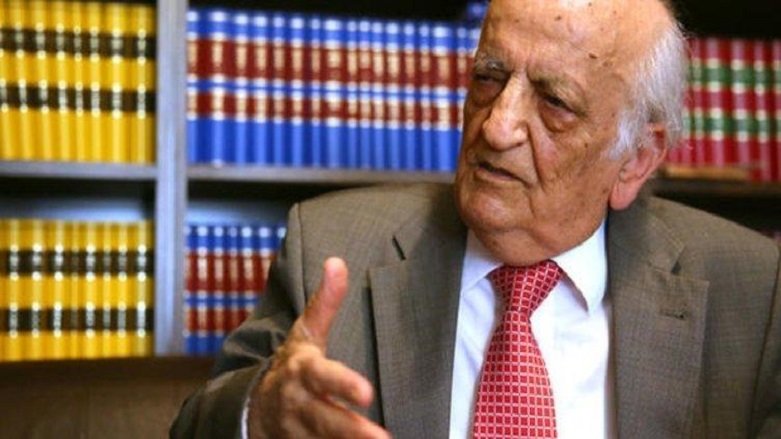Erdogan attends funeral of renowned Kurdish orientalist Fuat Sezgin, 94

ISTANBUL (Kurdistan 24) – Fuat Sezgin, a prominent academic authority in Oriental studies, professor of history of Islam and polyglot who had to go into self-exile in Germany after a coup in Turkey in 1960, died over the weekend aged 94 and was laid to rest in Istanbul.
Turkey's President, Recep Tayyip Erdogan, along with Parliament's Speaker and other top officials, attended his funeral which was held in Istanbul on Sunday.
Erdogan praised the legacy of the late Sezgin and his contributions to studies of Islamic history.
"I have given orders to declare the year 2019 as the Fuat Sezgin Islamic Science Year," he said.
Sezgin was a professor emeritus of Johann Wolfgang Goethe University in Frankfurt and founder of the Institute of the History of the Arab Islamic Sciences in Germany.
He was one of 147 leading academics, or as the putschists labeled, "dangerous professors" who were dismissed en masse from universities across Turkey in the wake of the 1960 coup, with accusations ranging from communist sympathies to working for the foundation of a Kurdish state.
Sezgin was born in 1924 in the Kurdish province of Bitlis only a year after the proclamation of a young Turkish Republic and began his academic studies at Istanbul University in 1943, where he later became a protege of the German orientalist, Helmut Ritter.
During his career throughout the decades following, he researched and wrote extensively on early Arabic Islamic sources. He argued in a 1956 thesis that the Sahih al-Bukhari, the major and most credible collection of Hadith, sayings of Islam's prophet Muhammad, was based on written sources rather than oral.
Apart from Turkish, German, his native Kurdish, he knew 24 other languages including Assyrian, Latin, Hebrew, and Arabic.
His work became a cornerstone reference on the history of science and technology in the Islamic world. The 5-volume "Natural Sciences of Islam" documents the items in the Frankfurt museum.
Since 1984 he has edited the Journal for the History of Arabic-Islamic Science.
A prolific author, Sezgin penned a 17-volume work "Geschichte des Arabischen Schrifttums" (History of Arabic Literature) over the years. His work, which he worked until his death as he was writing its 18th volume, became a top reference in the world academia on Islamic writings and sources.
Editing by Nadia Riva



